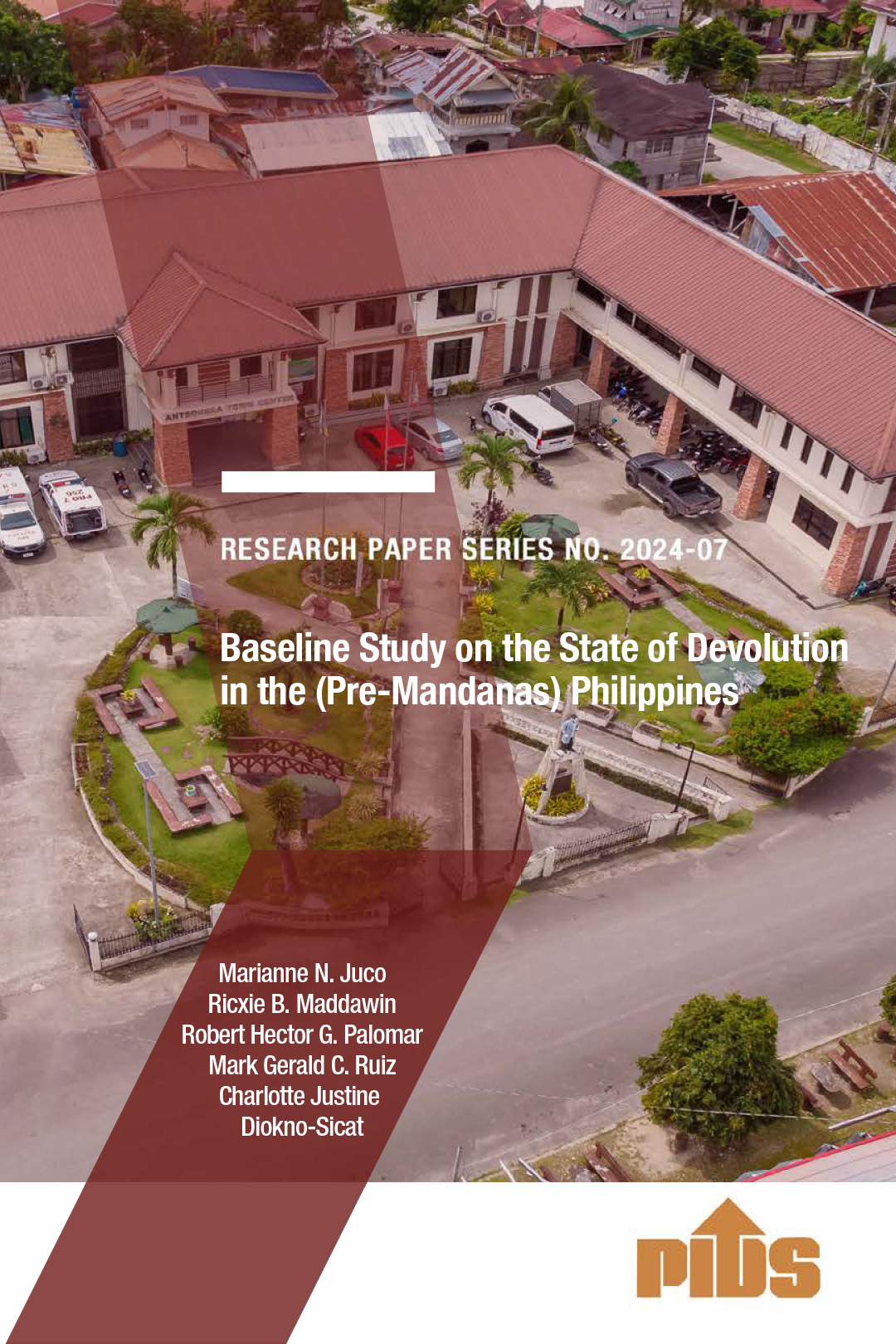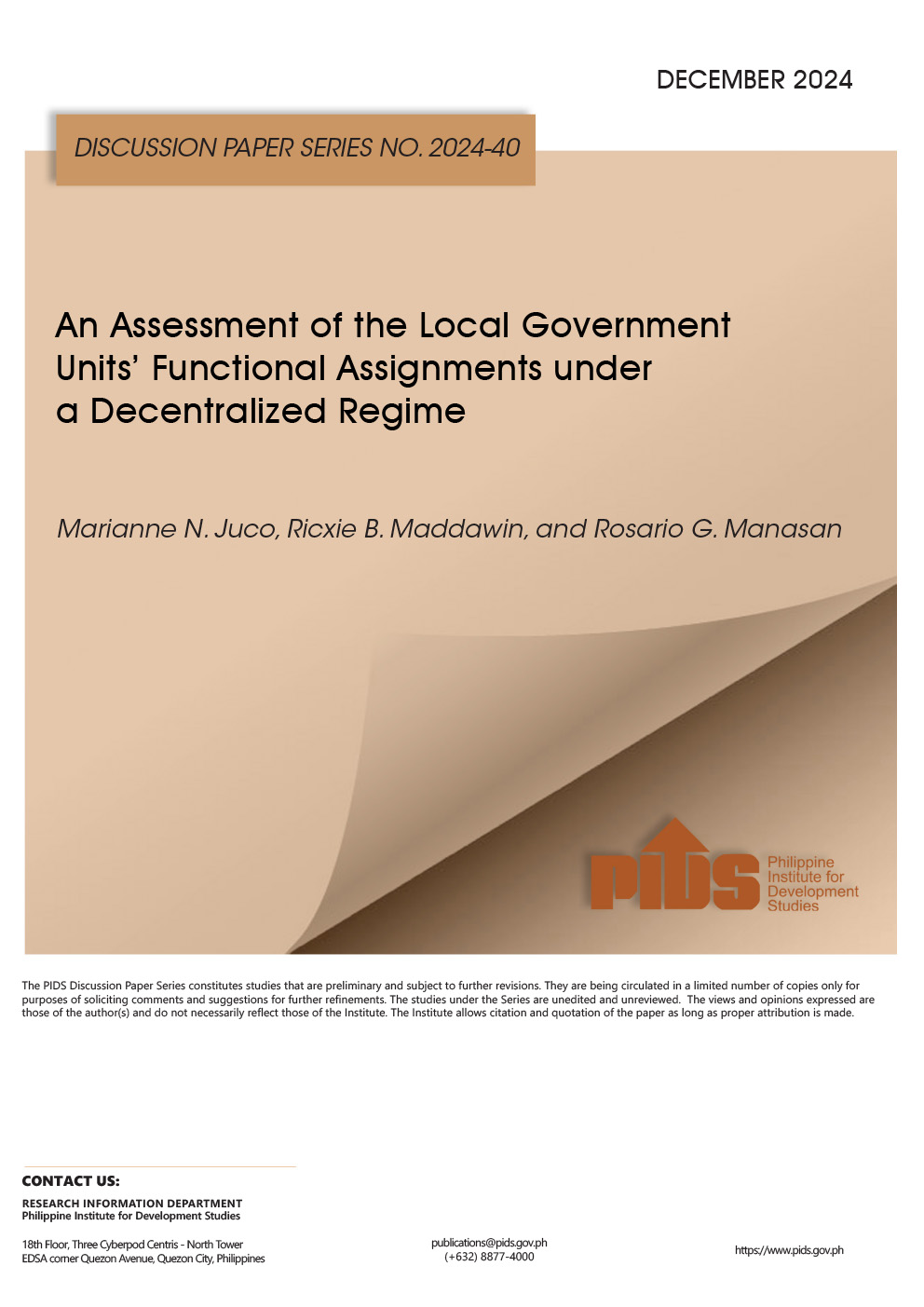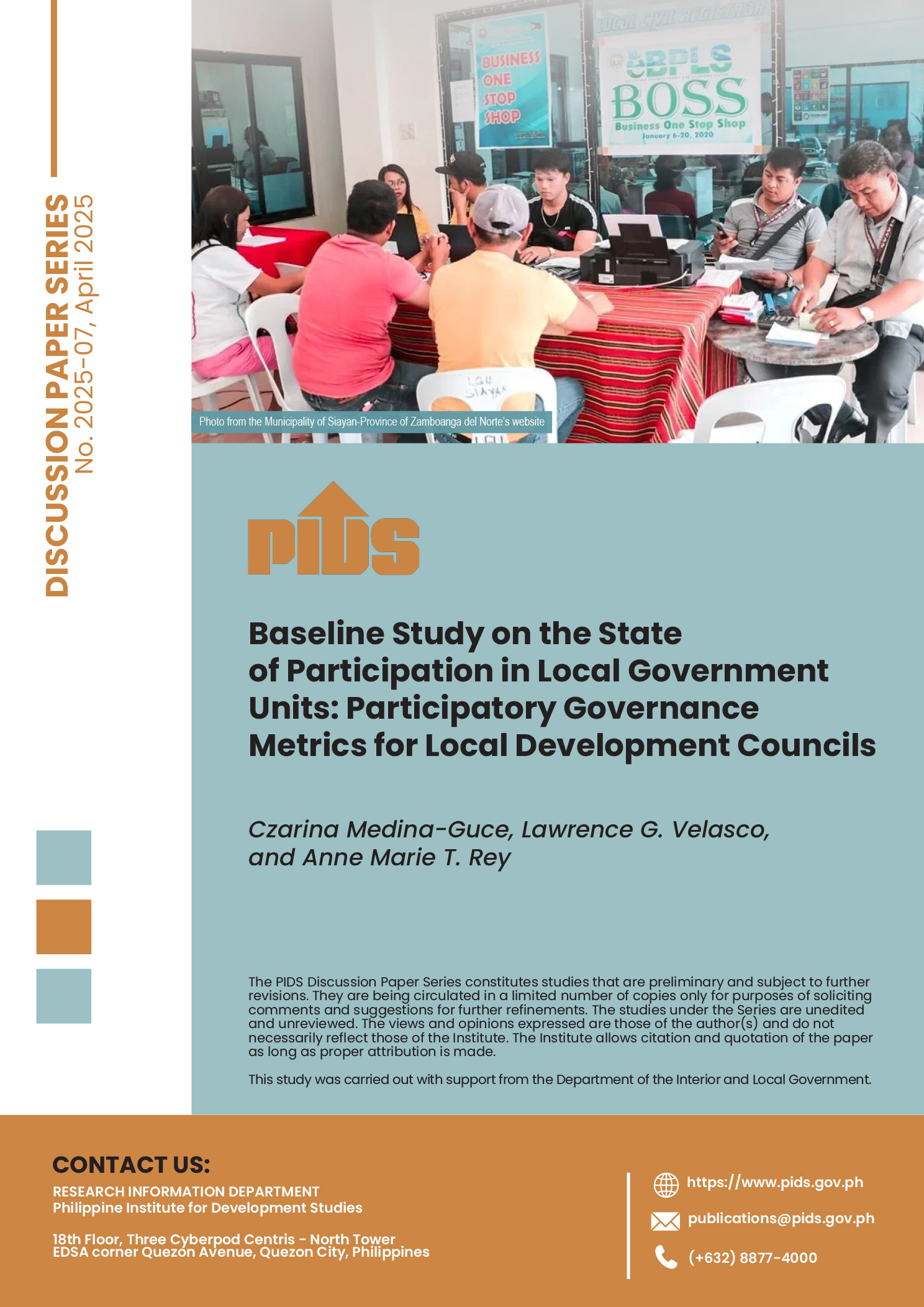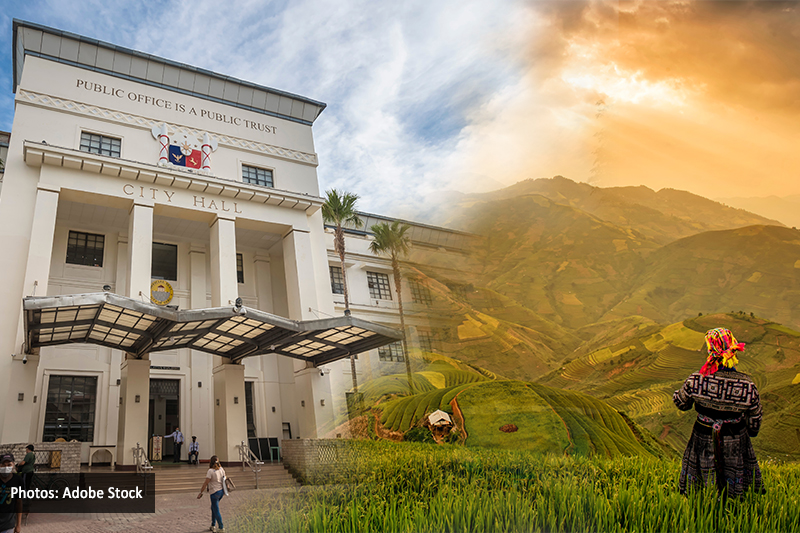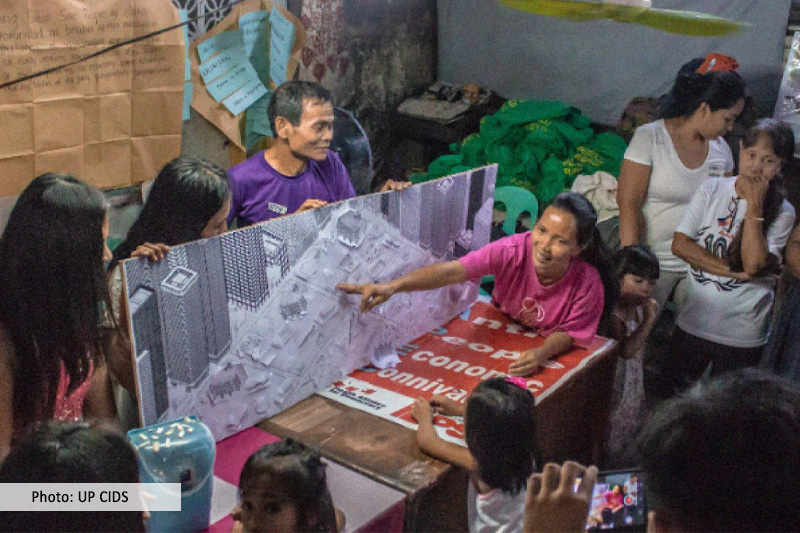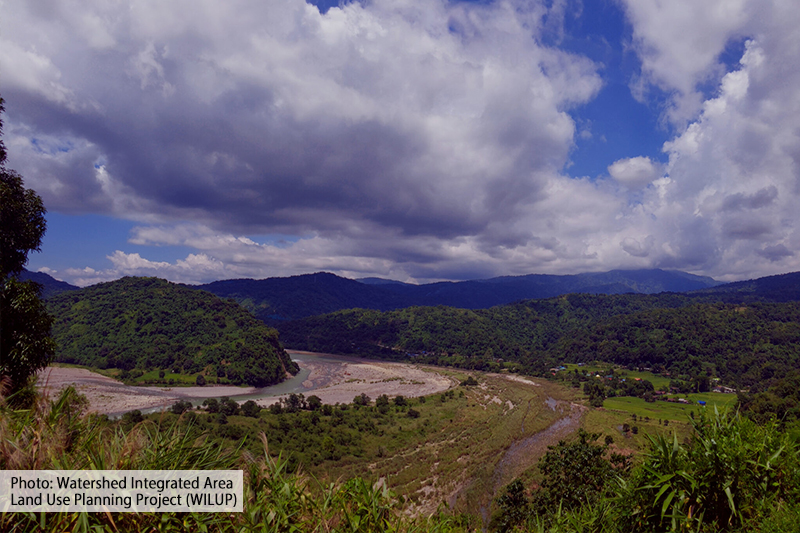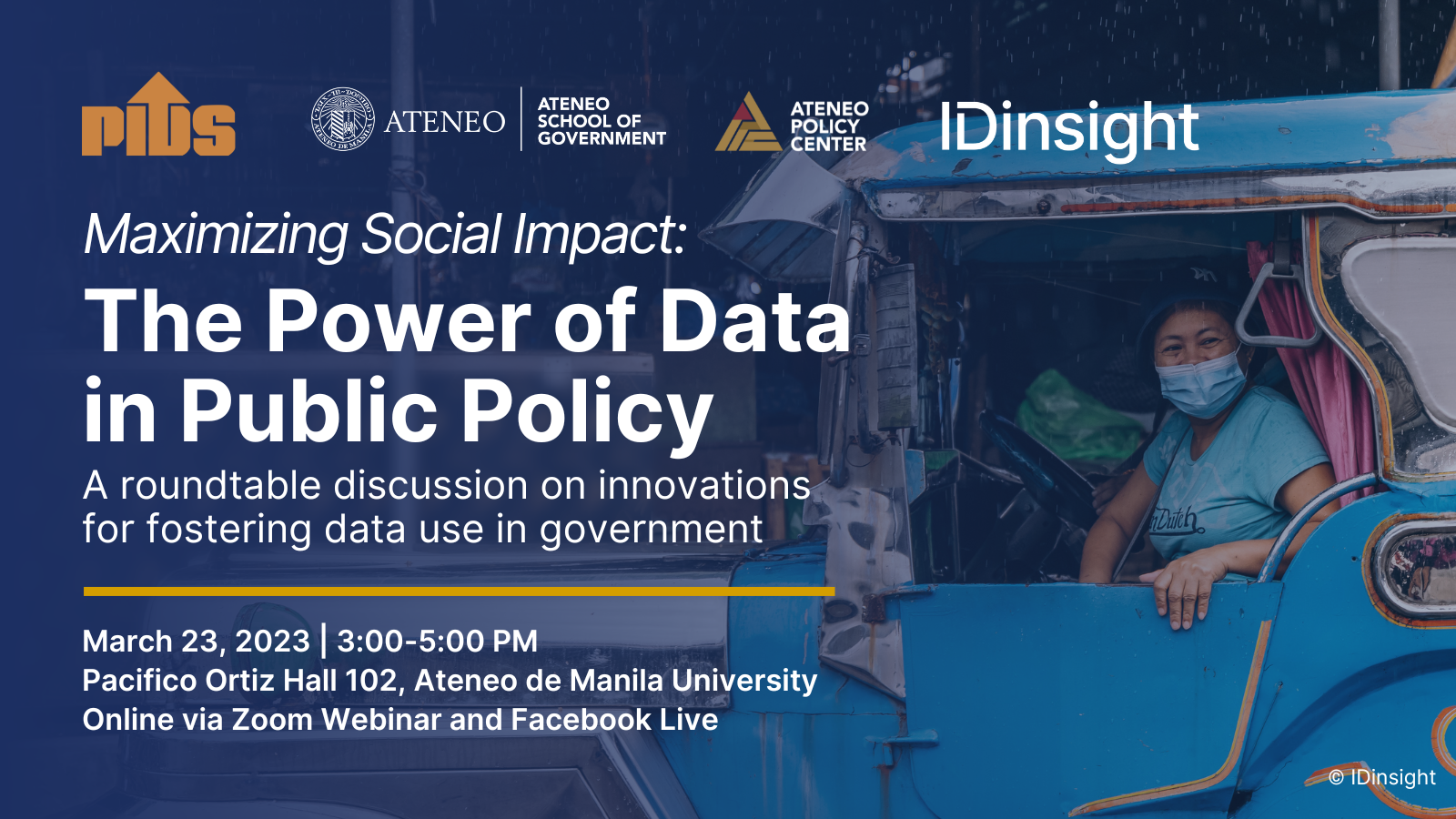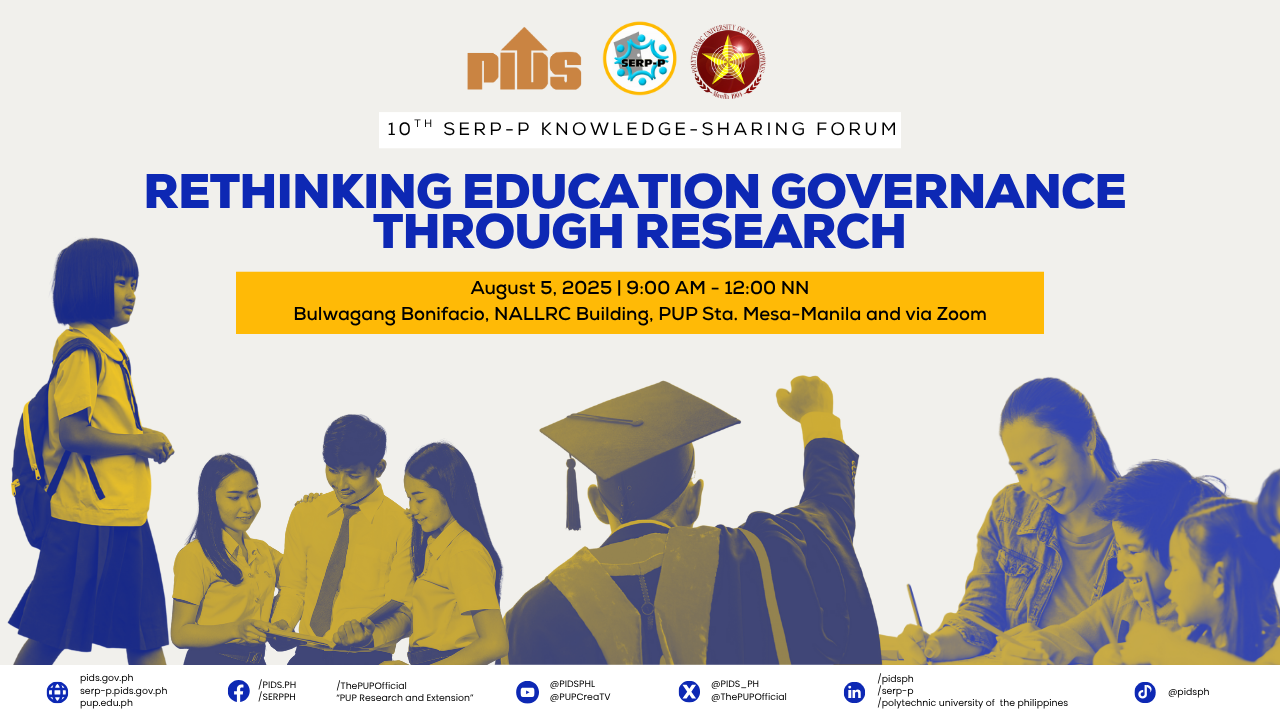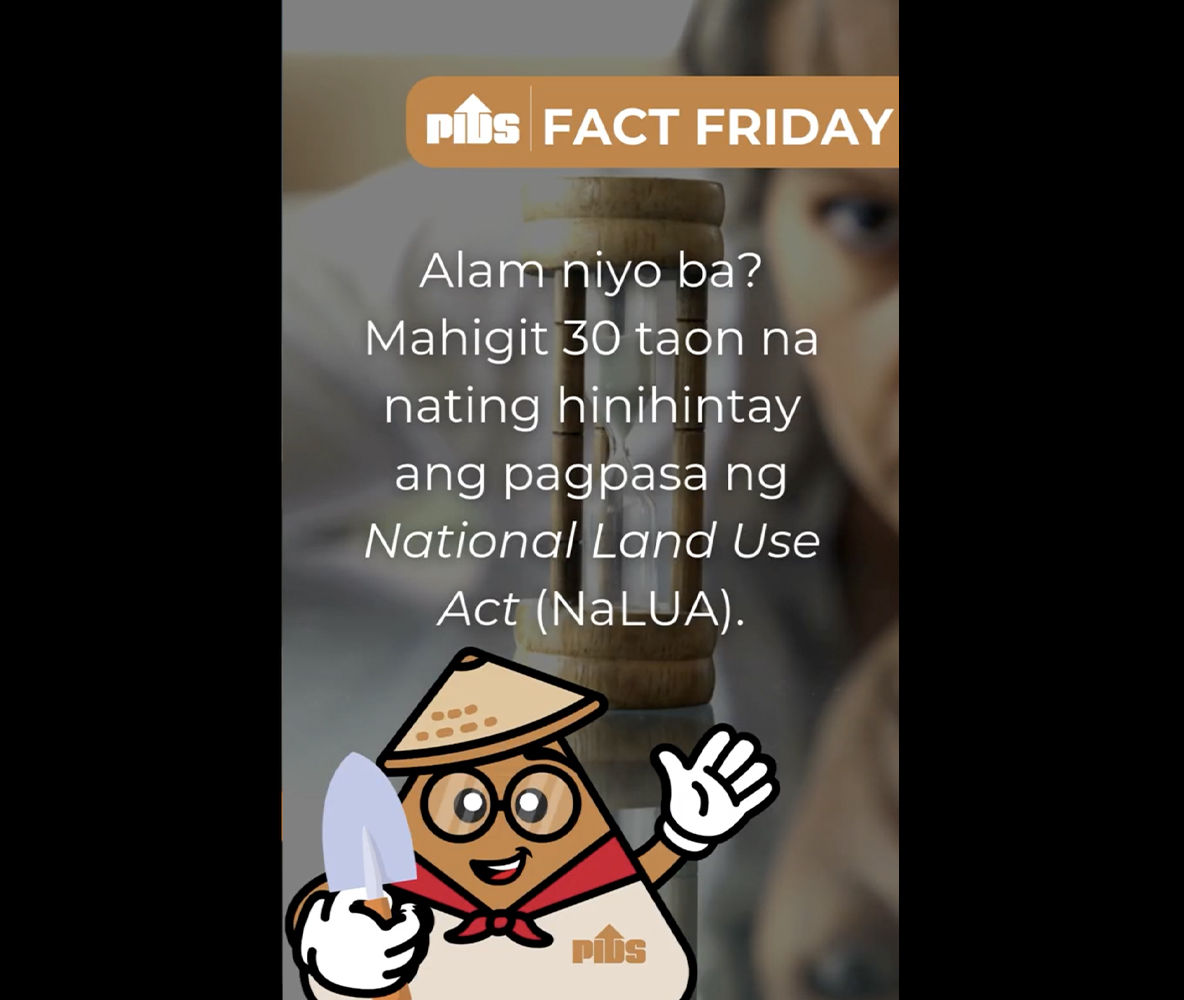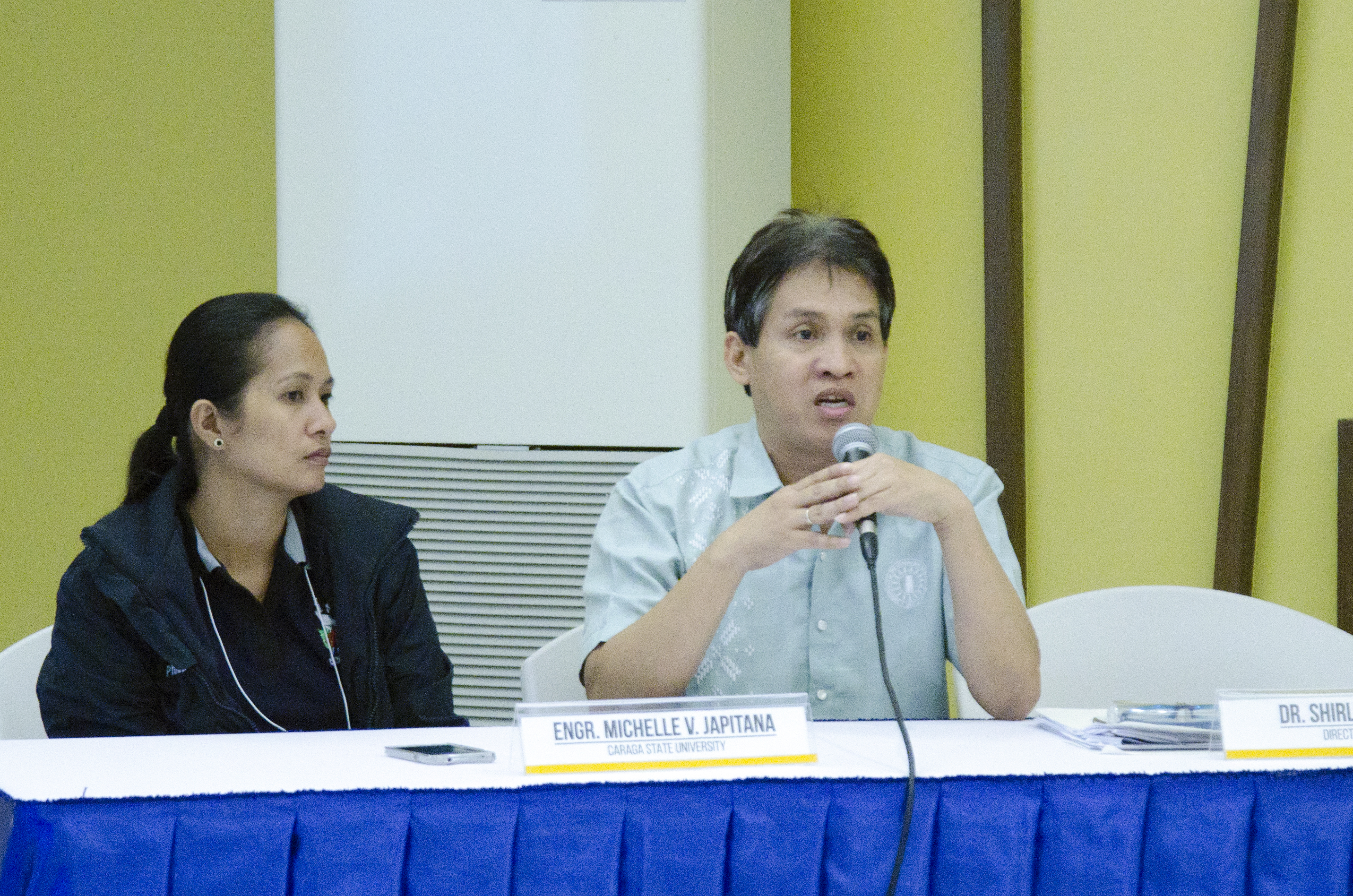
Local researchers and representatives from government agencies and the private sector brought mining, governance, and disaster-related issues to the fore during the 2nd Mindanao Policy Research Forum held in Butuan City on September 1, 2016. Researchers from Caraga State University (CSU) and Father Saturnino Urios University (FSUU) steered the discussion with their presentations on responsible mining in Mindanao, geographic information system (GIS) for local government units (LGUs), and disaster risk reduction and management (DRRM) initiatives.
On responsible mining
In her presentation, Dr. Raquel Balanay of CSU said that the mining process starts in exploration and ends in rehabilitation. Her study, which started in 2012, revolved in infusing a science and technology-based program to achieve responsible mining in Mindanao. This particular study involved eight components: (1) terrestrial biodiversity assessment, (2) aquatic biodiversity assessment, (3) profiling of artisanal and small-scale gold mining, (4) documentation of contamination pathways, (5) rehabilitation of mined-out areas, (6) processing of chromite and laterite ores, (7) development of alternative technologies for small-scale mining, and (8) generating web-based information system for responsible mining. These components were aimed at confronting issues related to mercury and cyanide pollution, erosion, environment degradation, and landscape destruction, among others.
"The ultimate goal of the program is to implement a socially acceptable, economically viable, environment-friendly, and sustainable mining in Mindanao," said Balanay. This, she added, entailed crafting of policies on wildlife conservation and pollution management, and addressing the lack of information on the concept behind responsible mining.
However, Balanay admitted that responsible mining has no universal definition yet. This echoed the sentiments of REACH Foundation Executive Director Arceli Nagpala, who served as one of the discussants in the forum. According to her, the parameters that make mining "responsible" should first be identified. She suggested for a national government vision for mining, where planning starts at the regional level.
On developments in local government
Technological developments in local governance in Butuan City were also highlighted during the forum. Engr. Michelle Japitan, also from CSU, led the presentation on the Comprehensive Land Information Management System (CLAIMS) that is being implemented in the city. By harnessing the technological benefits of GIS, the CLAIMS-GIS Project is able to address Butuan's need for an integrated and automated systems for real property unit mapping, assessment, and tax collection. The project optimizes the use of these maps for various spatial mapping endeavors, particularly in crafting comprehensive land use plans and other disaster risk assessment applications.
"It has been one of the goals of the city to develop Butuan as a "Smart City". The CLAIMS-GIS Project could be the springboard that will launch never-before-seen Butuan City technologies," said Japitan.
Other developments instituted in the local government of Butuan were: (1) a barangay system profiler that performs geotagging on households; (2) a tree-tracker application for the Department of Environment and Natural Resources, which locates and monitors planted seeds; and (3) a disaster aid tagger and access system that designates households to evacuation centers, among others.
On disaster risk management
As co-organizer of the forum, FSUU's Dr. Shirlene Medori Alegre, director for Graduate Studies and Research, and Mr. Jeffrey Carin, director for Community Involvement and Advocacy, presented the university’s security and safety measures, and its DRRM initiatives.
"School safety ensures the continuity of providing quality education for students. This requires a dynamic and continuous process instigated by school administrators and participated by all stakeholders. Disasters can be prevented and mitigated with the spirited application of knowledge, creativity, and resourcefulness," said Alegre. Thus, disaster preparedness should be an integral part of educational planning, she added.
Carin, meanwhile, highlighted the need for appropriate, relevant, and responsive solutions to face immediate and identified problems that impede growth. According to him, the integrated community involvement and advocacy framework that FSUU is implementing aims to promote a holistic program that instills development values in their students. The framework also addresses disaster risk reduction and management facets that include preparedness, relief operations, and rehabilitation programs.
Aware of the importance of collaboration, Carin said, "We cannot conduct these programs without tapping government agencies, civil societies, and the private sector." This call was received favorably by the OIC-Assistant Regional Director of the Department of the Interior and Local Government (DILG)-Region 13, Donald Seronay, who said that the government and the academe are conducting overlapping projects that could be resolved by collaboration.
"DRRM and climate change adaptation are an integral part of managing local governments. Higher education institutions that conduct DRRM-related trainings are already helping LGUs in achieving DRRM competencies," Seronay said.
Way forward
Attended by more than 100 participants from different sectors in the region, the 2nd Mindanao Policy Research Forum was jointly organized by state think tank Philippine Institute for Development Studies, Mindanao Development Authority (MinDA), FSUU, and the Commission on Higher Education-Caraga. The event officially kicked off the celebration of the 14th Development Policy Research Month, which focuses on the theme "Investing in Risk Reduction for a Resilient Philippines".
According to Dr. Alexander Campaner, who served as moderator of the forum, the gathering of Mindanawon researchers, policymakers, and public and private stakeholders aims for more collaborations in research and policymaking for the benefit of Mindanao.
Director Reyzaldy Tan of MinDA closed the forum by encouraging the participants to walk the talk in DRRM, and in nurturing resilient communities in Mindanao.
On responsible mining
In her presentation, Dr. Raquel Balanay of CSU said that the mining process starts in exploration and ends in rehabilitation. Her study, which started in 2012, revolved in infusing a science and technology-based program to achieve responsible mining in Mindanao. This particular study involved eight components: (1) terrestrial biodiversity assessment, (2) aquatic biodiversity assessment, (3) profiling of artisanal and small-scale gold mining, (4) documentation of contamination pathways, (5) rehabilitation of mined-out areas, (6) processing of chromite and laterite ores, (7) development of alternative technologies for small-scale mining, and (8) generating web-based information system for responsible mining. These components were aimed at confronting issues related to mercury and cyanide pollution, erosion, environment degradation, and landscape destruction, among others.
"The ultimate goal of the program is to implement a socially acceptable, economically viable, environment-friendly, and sustainable mining in Mindanao," said Balanay. This, she added, entailed crafting of policies on wildlife conservation and pollution management, and addressing the lack of information on the concept behind responsible mining.
However, Balanay admitted that responsible mining has no universal definition yet. This echoed the sentiments of REACH Foundation Executive Director Arceli Nagpala, who served as one of the discussants in the forum. According to her, the parameters that make mining "responsible" should first be identified. She suggested for a national government vision for mining, where planning starts at the regional level.
On developments in local government
Technological developments in local governance in Butuan City were also highlighted during the forum. Engr. Michelle Japitan, also from CSU, led the presentation on the Comprehensive Land Information Management System (CLAIMS) that is being implemented in the city. By harnessing the technological benefits of GIS, the CLAIMS-GIS Project is able to address Butuan's need for an integrated and automated systems for real property unit mapping, assessment, and tax collection. The project optimizes the use of these maps for various spatial mapping endeavors, particularly in crafting comprehensive land use plans and other disaster risk assessment applications.
"It has been one of the goals of the city to develop Butuan as a "Smart City". The CLAIMS-GIS Project could be the springboard that will launch never-before-seen Butuan City technologies," said Japitan.
Other developments instituted in the local government of Butuan were: (1) a barangay system profiler that performs geotagging on households; (2) a tree-tracker application for the Department of Environment and Natural Resources, which locates and monitors planted seeds; and (3) a disaster aid tagger and access system that designates households to evacuation centers, among others.
On disaster risk management
As co-organizer of the forum, FSUU's Dr. Shirlene Medori Alegre, director for Graduate Studies and Research, and Mr. Jeffrey Carin, director for Community Involvement and Advocacy, presented the university’s security and safety measures, and its DRRM initiatives.
"School safety ensures the continuity of providing quality education for students. This requires a dynamic and continuous process instigated by school administrators and participated by all stakeholders. Disasters can be prevented and mitigated with the spirited application of knowledge, creativity, and resourcefulness," said Alegre. Thus, disaster preparedness should be an integral part of educational planning, she added.
Carin, meanwhile, highlighted the need for appropriate, relevant, and responsive solutions to face immediate and identified problems that impede growth. According to him, the integrated community involvement and advocacy framework that FSUU is implementing aims to promote a holistic program that instills development values in their students. The framework also addresses disaster risk reduction and management facets that include preparedness, relief operations, and rehabilitation programs.
Aware of the importance of collaboration, Carin said, "We cannot conduct these programs without tapping government agencies, civil societies, and the private sector." This call was received favorably by the OIC-Assistant Regional Director of the Department of the Interior and Local Government (DILG)-Region 13, Donald Seronay, who said that the government and the academe are conducting overlapping projects that could be resolved by collaboration.
"DRRM and climate change adaptation are an integral part of managing local governments. Higher education institutions that conduct DRRM-related trainings are already helping LGUs in achieving DRRM competencies," Seronay said.
Way forward
Attended by more than 100 participants from different sectors in the region, the 2nd Mindanao Policy Research Forum was jointly organized by state think tank Philippine Institute for Development Studies, Mindanao Development Authority (MinDA), FSUU, and the Commission on Higher Education-Caraga. The event officially kicked off the celebration of the 14th Development Policy Research Month, which focuses on the theme "Investing in Risk Reduction for a Resilient Philippines".
According to Dr. Alexander Campaner, who served as moderator of the forum, the gathering of Mindanawon researchers, policymakers, and public and private stakeholders aims for more collaborations in research and policymaking for the benefit of Mindanao.
Director Reyzaldy Tan of MinDA closed the forum by encouraging the participants to walk the talk in DRRM, and in nurturing resilient communities in Mindanao.

